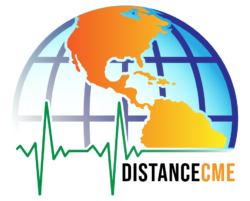Emergency Medical Services (EMS) is a dynamic and rapidly evolving field, where staying up-to-date with the latest knowledge and skills is crucial for professionals dedicated to saving lives. EMS education is not just about meeting recertification requirements; it’s about being prepared
for new challenges and advancements. This article explores some of the hottest topics in EMS education that every EMS provider should be aware of.
1. Advancements in Trauma Care
Trauma care is a critical component of EMS services, and advancements in this area can significantly impact patient outcomes. Recent innovations include the use of whole blood transfusions in prehospital settings, enhanced tourniquet techniques, and the integration of trauma-informed care practices. EMS education programs are increasingly incorporating these advancements to ensure providers are well-prepared for the latest in trauma care.
Key Points:
Whole blood transfusions can improve survival rates in severe trauma cases.
New tourniquet techniques are more effective in controlling severe bleeding.
Trauma-informed care focuses on understanding and responding to the effects of all types
of trauma.
2. Telemedicine in Prehospital Care
The COVID-19 pandemic accelerated the adoption of telemedicine across various medical fields, including EMS. Telemedicine allows EMS providers to consult with physicians and specialists in real-time, improving decision-making and patient care during emergencies. EMS education is now focusing on integrating telemedicine protocols and training providers to use these technologies effectively.
Key Points:
Real-time consultations with medical specialists.
Improved decision-making in the field.
Enhanced patient outcomes through immediate expert input.
3. Mental Health and Wellness for EMS Providers
The demanding nature of EMS work can take a toll on mental health. Recognizing this, EMS education programs are placing a greater emphasis on mental health and wellness. This includes training on recognizing signs of burnout, stress management techniques, and providing resources for mental health support. A healthy EMS workforce is essential for delivering high-quality patient care.
Key Points:
Importance of mental health and wellness in EMS.
Training on recognizing and managing burnout.
Access to mental health resources and support.
4. Diversity and Cultural Competence
As the demographics of the patient population become more diverse, EMS providers must be culturally competent to provide effective care. EMS education now includes training on cultural competence, bias recognition, and communication skills to ensure providers can deliver equitable care to all patients. Understanding cultural differences and providing respectful care is vital in today’s diverse society.
Key Points:
Importance of cultural competence in EMS.
Training on recognizing and addressing biases.
Improved communication skills for diverse patient populations.
5. Advanced Airway Management Techniques
Airway management is a fundamental skill in EMS, and advancements in this area can greatly enhance patient care. New techniques and devices, such as video laryngoscopy, supraglottic airway devices, and high-flow nasal cannula oxygen therapy, are becoming standard practice. EMS education programs are incorporating these advanced techniques to ensure providers can manage airways effectively in various scenarios.
Key Points:
Introduction of video laryngoscopy and its benefits.
Use of supraglottic airway devices.
High-flow nasal cannula oxygen therapy for improved oxygenation.
6. Integrating Simulation-Based Training
Simulation-based training is gaining traction in EMS education due to its effectiveness in enhancing clinical skills and decision-making. High-fidelity simulations provide realistic scenarios that allow EMS providers to practice and refine their skills in a controlled environment. This hands-on approach is invaluable in preparing providers for real-life emergencies.
Key Points:
Benefits of high-fidelity simulation training.
Improved clinical skills and decision-making.
Safe environment for practicing complex scenarios.
Staying informed about the latest trends and advancements in EMS education is essential for providers who are committed to delivering the best possible care. By focusing on topics such as advancements in trauma care, telemedicine, mental health, cultural competence, advanced airway management, and simulation-based training, EMS professionals can enhance their knowledge and skills to meet the evolving demands of the field. At Distance CME, we are dedicated to providing high-quality education that keeps EMS providers at the forefront of their profession. Our comprehensive courses and training programs
are designed to address these hot topics and more, ensuring you are well-prepared for any challenge. Enroll today and take the next step in your EMS career!





